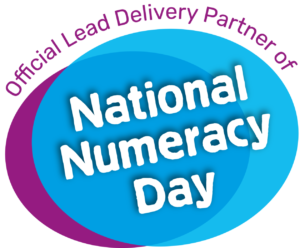It’s a few months now since the eyes of the world were on Glasgow for COP26. The hubbub of hosting the global climate conference may be over but the challenge to stay engaged with the issues around climate justice and sustainable futures remains clear for all of us. If you’re looking for some ideas on how to build these issues into your CLD practice, then please have a look at these new films on Education Scotland’s YouTube channel.
In November (before the onset of Omicron variant) we were able to visit some of the CLD projects recognised in the National Learning for Sustainability (LfS) Awards and make some short films (5-10 mins). It was a privilege for us to meet some of the young people and adults involved in the projects as well as the dedicated and inspirational practitioners who were supporting the work.
Learning for Sustainability (LfS) is a theme across learning in Scotland which aims to enable learners, educators and communities to build more socially-just, sustainable and equitable futures. It weaves together global citizenship, sustainable development education and outdoor learning to create transformative learning experiences. Community learning and development has a vital role to play in supporting individuals and groups of all ages to equip themselves with the skills and knowledge needed to respond to sustainability issues.
The winning projects in the CLD category were:
• The Intergenerational Forget Me Not Gardening Group Learning for Sustainability Awards 2021. Forget Me Not Intergenerational Gardening group – YouTube
• Glasgow Science Centre’s CLD Programme Learning for Sustainability Awards 2021: Glasgow Science Centre (Nov 2021) – YouTube
Three other projects were highly commended in the CLD category:
The Forget Me Not Gardening Group brings together families and older residents from a day centre to take part in gardening activities at the Kildrum Family Learning Centre in Cumbernauld. During the pandemic the group has grown its own vegetables and undertaken online cookery sessions. The relationships formed have provided great opportunities for intergenerational learning to develop in a fun and friendly environment.
Glasgow Science Centre’s exciting CLD programme continues to go from strength to strength, engaging individuals and community groups in a range of workshops and learning activities around sustainability and climate action. The Science Centre was of course heavily involved in COP26, hosting the conference’s public realm – known as the Green Zone .
We weren’t able to make it out to film with Dyslexia Scotland but their commendation was richly deserved. It recognised their work with children, young people, adults, professionals and communities, to create a more inclusive Scotland where people with dyslexia are able to reach their potential in life, learning and work. Learning for sustainability is embedded through their volunteer development, empowerment and drive to create equity and inclusion. They deliver parent masterclasses and adult learning, literacies and networks, youth work and Young Ambassadors as well as offering support and training for CLD practitioners, employers and the wider education sector.
The Youth Climate Ambassadors are an inspirational group of young people from across North Lanarkshire who share an interest in climate change and environmental issues. The groups’ first project was to produce a short film ‘‘Dear World Leaders’ as part of Keep Scotland Beautiful’ s Youth Climate Film Project. Since then they have been collaborating and learning together both online and face-to-face (as restrictions have allowed) to participate in interactive learning and discussion activities on climate related topics, from food to fashion, children’s rights, the UN sustainable development goals, weather systems, global impacts, CO2 emissions and much more. The group are supported by youth workers from the Council’s CLD Team and you can see some of their activities here.
The Minecraft project at St Philomena’s Primary School was a joint initiative with St Paul’s Youth Forum which engaged a team of pupils in developing proposals to improve their local community in the East End of Glasgow. Using a faithful realisation of the school and the local area within Minecraft, they were able to collaborate in a realistic virtual setting to design their ideas for their local community. Pupils have developed their skills for learning, life and work in the real world and in a virtual setting. The project has contributed to “Flourishing Molendinar”, a large-scale community project to create healthier and greener neighbourhoods in the area, supported by Sustrans Scotland.





